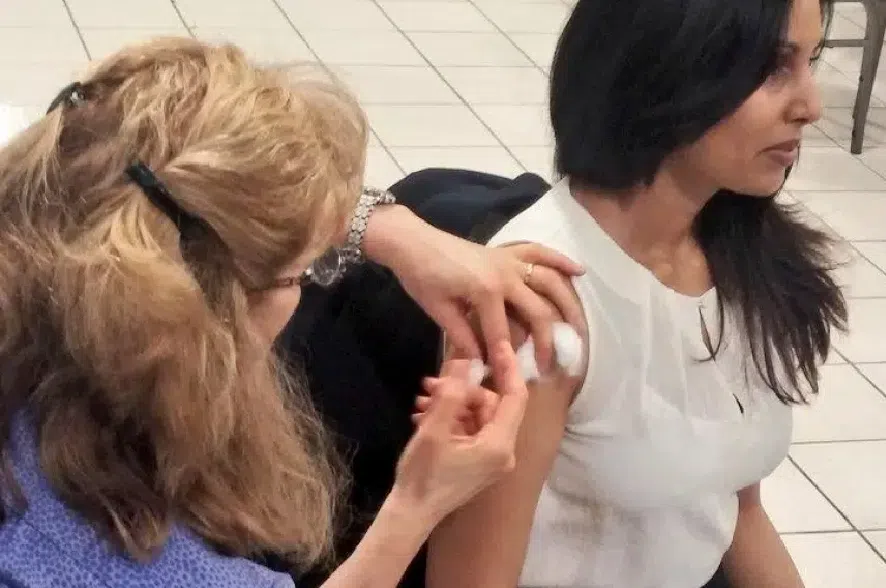COVID-19 seems to be off the radar of most people in Saskatchewan, but parts of the world are reporting a surge in cases since the summer months. What’s the update on this illness in the province and will a new vaccine be coming to Saskatchewan? Evan Bray asks Chief Medical Health Officer, Dr. Saqib Shahab.
What is the COVID-19 situation right now for Saskatchewan?
DR. SHAHAB: We publish the Community Respiratory Illness Surveillance Program (CRISP) report and the last one was published this Friday, September 13. And what it shows is two things. One is that covid hasn’t really gone away, but it lingered. It lingers at a low level throughout the summer. But the good news is that hospitalizations and deaths, thankfully, have come down from covid. Just like with influenza, we see an increase in fall and early winter because we’re all congregated indoors.
It still might have the label of covid, but the way we treat it is very similar to the way we would treat any other, any other flu or illness with is that fair to say, in your in your estimation?
DR. SHAHAB: We do what we do with any respiratory unless we stay home till we better? And you know, you don’t really need to know if it’s covid or influenza, as long as the symptoms are mild and you’re resting at home, because the management really is symptomatic.
And of course, if your symptoms are worsening or you need healthcare it’s important to call 811. If you go to your healthcare provider, they may then, at that time, test you for a variety of respiratory infections, including Covid. And that’s especially important if you’re hospitalized, and that’s where you do get tested, and that’s what generates the information for our CRISP report.
But you know, prevention is better than cure, and so it’s really important for us to think about getting both the covid and flu shots this fall, just like we did last year.
Are we in Saskatchewan approaching sickness in general differently today, than we might have in 2019?
DR. SHAHAB: There’s a greater awareness of keeping yourself healthy. The usual stuff, nutrition, exercise, all these things keep you healthy, boost your immune system.
When we’re in confined spaces, we do sometimes choose to wear masks. That’s especially important if you are, for example, at high risk. For example, if you’re undergoing chemotherapy or cancer treatment, or you are immune suppressed, or you’re older and you’re in a confined space, like an airplane. We do see people wearing a mask, and that’s perfectly acceptable now.
During the Olympics, for example, when athletes are traveling to competitions, and even though they are less likely to get seriously ill from a respiratory infection, they have also become aware that there are measures they can take to reduce even mild respirators, which may impact their performance.
The province ended its free supply of rapid antigen tests back in February. Are there kits still available?
DR. SHAHAB: Initial program where, you know, we widely distributed rapid antigen test has ended. At the moment, they may be kept available for purchase from some pharmacies, not all pharmacies.
But again, now that covid has settled in as one of many rescue viruses for most of us. It’s not really important to test yourself.
In terms of vaccination, You’d get your regular flu shot, and you would get a covid shot. Am I correct?
DR. SHAHAB: Yes. The online booking system, the SHA, will be launching that around October 8. Vaccines will be available in that second week of October. We should all make a note to book an appointment that works for us, but not leave it too late.
Will there always be an attempt to keep the flu and covid-19 shots as individual shots? So people have that choice.
DR. SHAHAB: People are the best judge of what’s best for them in terms of their health. You know, last fall, actually, we had more people getting the influenza vaccine than the covid vaccine, and I was perfectly comfortable with that, because the thing with influenza is that influenza can be a serious illness at any age, but especially for children under nine, for people who are 65 and older, for people with underlying risk factors.
— Editors Note: Question and answers have been edited for clarity.











